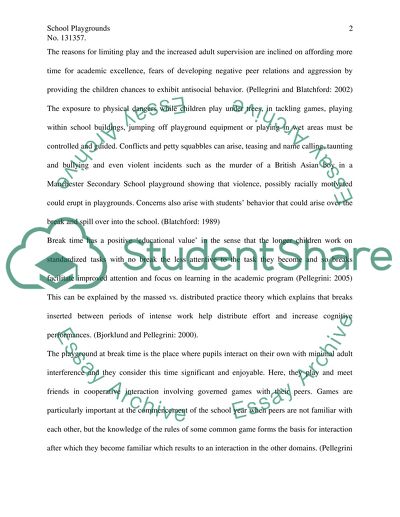Cite this document
(Playtime in the Primary School Assignment Example | Topics and Well Written Essays - 1000 words, n.d.)
Playtime in the Primary School Assignment Example | Topics and Well Written Essays - 1000 words. https://studentshare.org/education/1524405-school-playgrounds
Playtime in the Primary School Assignment Example | Topics and Well Written Essays - 1000 words. https://studentshare.org/education/1524405-school-playgrounds
(Playtime in the Primary School Assignment Example | Topics and Well Written Essays - 1000 Words)
Playtime in the Primary School Assignment Example | Topics and Well Written Essays - 1000 Words. https://studentshare.org/education/1524405-school-playgrounds.
Playtime in the Primary School Assignment Example | Topics and Well Written Essays - 1000 Words. https://studentshare.org/education/1524405-school-playgrounds.
“Playtime in the Primary School Assignment Example | Topics and Well Written Essays - 1000 Words”. https://studentshare.org/education/1524405-school-playgrounds.


